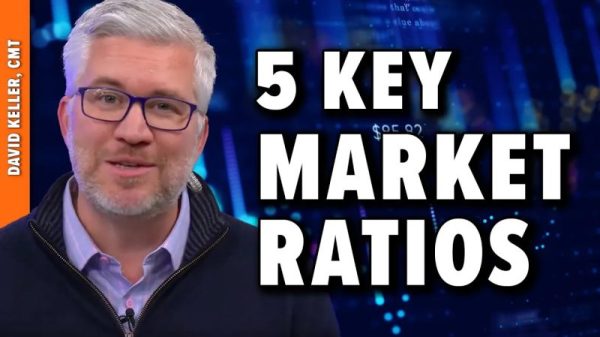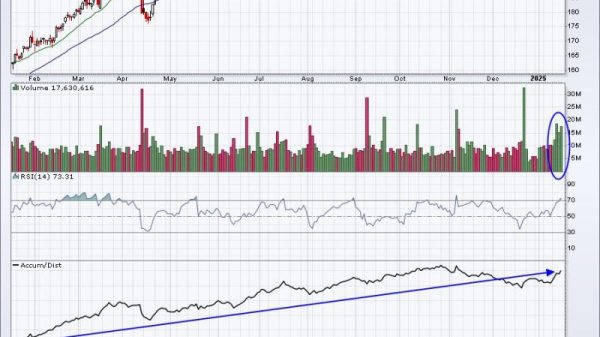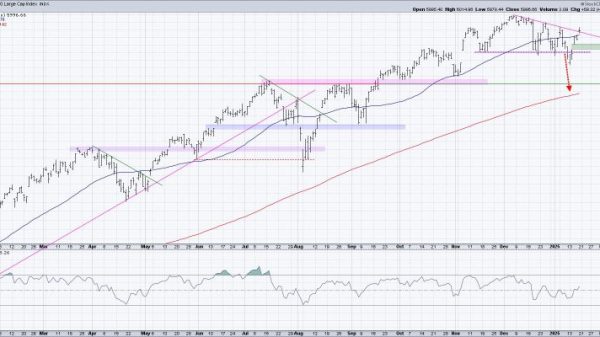For a few hours on Wednesday evening, tension pulsed through Britain’s streets.
Shops and businesses closed early in dozens of cities and towns, boarding up their storefronts and getting out. Police descended on high streets and residential roads, and locals showed up too, ready for the worst.
But then the counter-protests started. Anti-racism rallies stole back the narrative and kept away far-right antagonists, and a nervous country breathed a huge sigh of relief after a night that could have felt very different.
Wednesday felt like a turning point after a string of violence that had put a country on edge and thrown its new government into a sudden crisis.
But the government says it remains on high alert for more unrest this weekend. The fury simmering in a subset of White Britain remains a live danger; these riots were shocking, but not entirely surprising.
And the causes that aided and enabled the racist violence – misinformation, anti-migrant rhetoric in Britain’s media and politics, a hobbled police force and stuffed prisons and courts – will take far longer than a night to fix.
“The chickens come home to roost,” he said. “As a country, this is a bed that we’ve made, and now we’re sleeping in it.”
Online provocateurs and far-right foot soldiers
Fittingly, after a week of misinformation-fuelled fury, the origin and authenticity of the list of supposed far-right targets on Wednesday isn’t clear.
The addresses included were mainly immigration centers and lawyers dealing with migration cases. It was a scattershot collection, seemingly collated with little knowledge of the local areas; some were offices based in non-descript business parks; others on quiet, residential streets.
But after a weekend of ugly anger on Britain’s streets, in which hotels housing asylum seekers were set on fire by racist mobs, it quickly went viral: first on Telegram channels used by the far right, then across social media, and among the communities that appeared to be targets. A huge police operation across the country was launched; in the end, few far-right disruptors showed up anywhere.
Misinformation on social media has added an element of unpredictability to the far right’s organization.
Leading platforms, especially X, have provided new soapboxes to incendiary figures intent on stirring anti-migrant sentiment. In many cases, their posts are eagerly shared and viewed by the far-right foot soldiers who joined the weekend’s riots – even if the authors quietly condemn violence after the fact.
Tommy Robinson, the figurehead of Britain’s far right, was reinstated to X (then Twitter) days after Elon Musk bought the platform. Robinson, whose profile picture shows him with tape across his mouth, has nearly a million followers.
Almost every one of his tweets is an anti-migrant tirade, frequently using dehumanizing and othering language to describe the high rate of legal and illegal migration to the UK.
Those themes are echoed by other high-profile Twitter users, like provocateur Laurence Fox, who hosted a show on the right-wing GB News TV channel until he was fired last October for demeaning the appearance of a female journalist on air. Amid the weekend’s riots, Fox told his followers: “Islam needs to be removed from Britain. Completely and entirely.”
Starmer has become an enemy in the eyes of the far right over the past week, but he has little ability to quell a right-wing and far-right online ecosystem that exists in private messaging apps and, increasingly, on public sites accessible by anyone.
And remarkably, the first spat that Britain’s new Prime Minister Keir Starmer found himself engaged in was with Musk himself, who has taken an interest in goading Starmer on his platform.
Musk tweeted Sunday that “civil war is inevitable” in Britain – a prediction most Brits would scoff at, and one that prompted an unusually direct rebuke from the prime minister’s spokesperson, who told reporters there was “no justification” for the comments.
A legal blitz
Britain’s far-right rioting broke out less than a month into the tenure of its new prime minister, but Starmer has been here before.
Formerly Britain’s highest-ranking prosecutor, Starmer oversaw a rapid legal response to the 2011 rioting that broke out after the shooting of a Black man by police in north London. Courts stayed open 24 hours and sentences were well publicized, in an effort not just to deal justice but to send a message.
He has reached for the same playbook this week. There have been hundreds of arrests, and already dozens of rioters have been charged and sent to begin hefty prison terms, ranging from several months to nearly three years. Their ages, so far, span from 16 to 69. Some judges’ sentencing remarks have been broadcast live, a novel tactic in a country where courtroom cameras are a recent and heavily restricted phenomenon.
Early signs suggest the legal blitz has worked in deterring far-right supporters from taking to the streets.
It has also led to a moniker – “two-tier Keir” – among those far-right groups, who claim Starmer is using tougher rhetoric on the far right than he did against other protesters, like climate activists.
Starmer will be unbothered by that fringe grievance. But there are wider inequalities that gave rise to the unrest which will take years to resolve.
Riots took hold disproportionately in cities and towns suffering from high levels of deprivation; places where, over recent years, people have increasingly seen the creaking foundations of the British state through a lens that focuses unforgivingly on migration.
The motives of the far-right stray well beyond concern about migration, and into hatred and racism. “We are losing our heritage to a Muslim situation that has got out of control. They want this country for their own,” McDermott also said. Referring to a larger crowd of counter-protesters in Sheffield, he added: “I don’t know what the hell’s going on with them. They’re not human.”
But the explosion of anti-migrant discourse on Britain’s airwaves and online, coupled with the breakdown of the country’s underfunded public services, has given Brits tempted by far-right discourse a more emotive, and socially acceptable, entry point.
The combination of those grievances with the proliferation of far-right material is a trend that Britain is not facing alone, but it is a force Starmer has pledged to counter.
Starmer styled himself as an antidote to populism at the start of his time in office, and told rioters in an address from Downing Street: “I guarantee you will regret taking part in this disorder.” How quickly he comes through on those promises may become a defining question of his premiership.


































